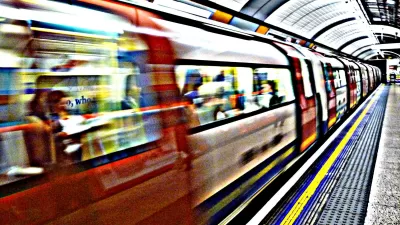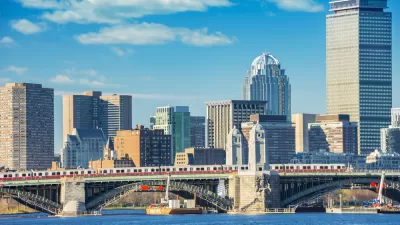California has set a deadline of 2020 to rely less on fossil fuels and more on alternative energy, but a report finds this strategy could end up emptying ratepayers' pockets and damaging the state's environmental resources, reports Julie Cart.
The increase of wind and solar sources to California's energy mix is intended to reduce the state's use of fossil fuels, in accordance with a legal requirement that state utilities must draw a third of their power from these renewable sources by 2020. The effort is applaudable, says nonpartisan Little Hoover Commission, but this plan could be a "profoundly expensive policy failure" due to the "balkanized" and "dysfunctional" network of state energy agencies. In its analysis "Rewiring California," the Commission warns that policy errors resulted in the crisis that raised electricity rates through the roof during former Governor Gray Davis's administration and that a similar problem could happen due to the current energy strategy, or lack thereof. Their recommendation for Governor Jerry Brown is "to establish a single overarching entity or agency to coordinate the state's energy policy."
"Getting it right is far more important than speed," said Commission Chairman David Hancock. "Without more careful calibration of these policies, Californians may wind up paying more than necessary for electricity and the state may unnecessarily degrade pristine habitat in its rush to implement renewable energy goals." Even though the energy initiative is a step towards the future, the Commission asks Brown "to assess the real cost of the state's energy policies and determine whether they will help achieve the goal of reducing fossil fuel emissions" and to consider "a moratorium on further renewable energy policies."
FULL STORY: State lacks strategy on alternative energy, report says

Maui's Vacation Rental Debate Turns Ugly
Verbal attacks, misinformation campaigns and fistfights plague a high-stakes debate to convert thousands of vacation rentals into long-term housing.

Planetizen Federal Action Tracker
A weekly monitor of how Trump’s orders and actions are impacting planners and planning in America.

San Francisco Suspends Traffic Calming Amidst Record Deaths
Citing “a challenging fiscal landscape,” the city will cease the program on the heels of 42 traffic deaths, including 24 pedestrians.

Defunct Pittsburgh Power Plant to Become Residential Tower
A decommissioned steam heat plant will be redeveloped into almost 100 affordable housing units.

Trump Prompts Restructuring of Transportation Research Board in “Unprecedented Overreach”
The TRB has eliminated more than half of its committees including those focused on climate, equity, and cities.

Amtrak Rolls Out New Orleans to Alabama “Mardi Gras” Train
The new service will operate morning and evening departures between Mobile and New Orleans.
Urban Design for Planners 1: Software Tools
This six-course series explores essential urban design concepts using open source software and equips planners with the tools they need to participate fully in the urban design process.
Planning for Universal Design
Learn the tools for implementing Universal Design in planning regulations.
Heyer Gruel & Associates PA
JM Goldson LLC
Custer County Colorado
City of Camden Redevelopment Agency
City of Astoria
Transportation Research & Education Center (TREC) at Portland State University
Jefferson Parish Government
Camden Redevelopment Agency
City of Claremont




























